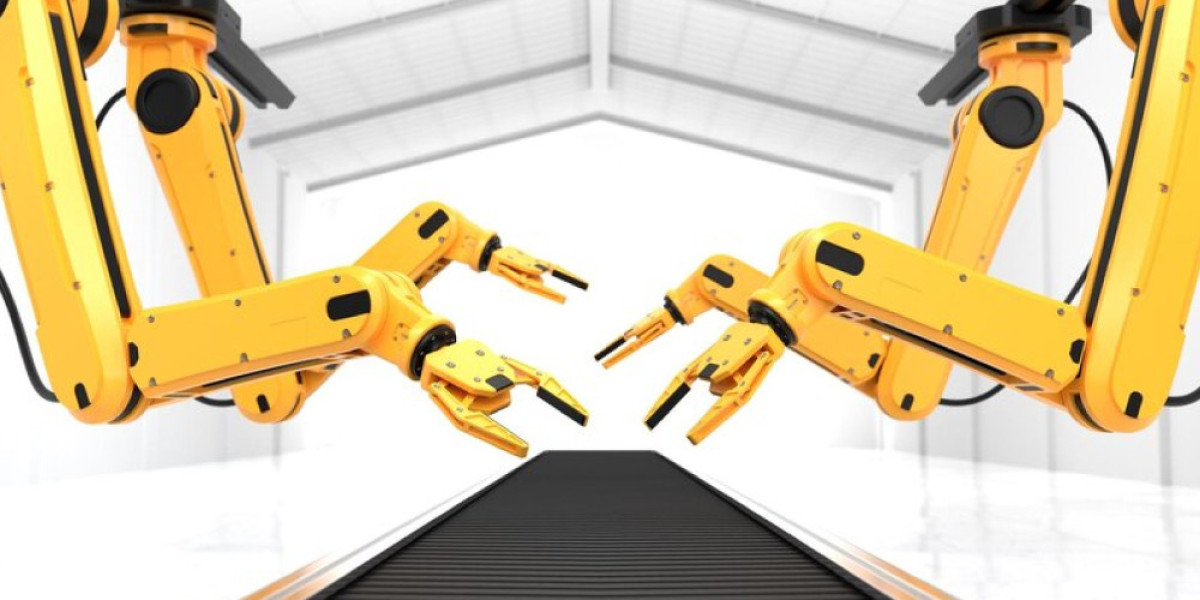The CNC Machine Industry is characterized by rapid technological advancements and a growing emphasis on automation. This industry includes a wide range of players, from manufacturers of CNC machines to software developers and service providers. As industries such as aerospace, automotive, and electronics increasingly rely on precision machining, the CNC machine industry is poised for substantial growth. The integration of smart technologies and IoT in CNC systems is also transforming manufacturing processes, making them more efficient and responsive to market demands.
The Computer Numerical Control (CNC) Machine Market has emerged as a cornerstone of modern manufacturing, transforming the way products are designed, fabricated, and assembled across industries. CNC machines are automated control devices that interpret and execute programmed commands to operate tools such as lathes, mills, routers, and grinders with high precision. As industries embrace automation, CNC technology has become essential for improving production efficiency, accuracy, and consistency. The market has witnessed steady growth over the years, driven by the increasing adoption of smart manufacturing, the demand for high-precision components, and advancements in industrial automation systems.
Market Dynamics and Growth Drivers
One of the key factors fueling the CNC machine market is the growing trend toward digitalization in manufacturing operations. Industries such as automotive, aerospace, and electronics rely heavily on CNC machines for producing complex parts with minimal human intervention. Additionally, the integration of Internet of Things (IoT) and Artificial Intelligence (AI) into CNC systems has revolutionized predictive maintenance, energy management, and operational monitoring. These technologies have significantly reduced downtime and increased productivity. Furthermore, the global demand for mass customization, where products are tailored to individual requirements without compromising on efficiency, has boosted CNC machine adoption.
Technological Advancements Shaping the Market
The evolution of CNC technology has been marked by innovations in multi-axis machining, hybrid manufacturing, and computer-aided design (CAD) integration. The introduction of 5-axis CNC machines has expanded capabilities by allowing complex geometries to be produced in a single setup, minimizing manual adjustments. Additionally, the development of hybrid machines that combine additive and subtractive processes enables manufacturers to achieve unparalleled flexibility. Enhanced software solutions for simulation and digital twin modeling have also empowered manufacturers to optimize production processes before physical execution.
Applications Across Key Industries
CNC machines play a vital role in several sectors. In the automotive industry, they are used to create engine blocks, transmission components, and intricate interior parts. Aerospace manufacturers depend on CNC machining to produce lightweight yet durable aircraft parts with stringent tolerances. The electronics sector benefits from precision CNC machining for the production of micro-components, while the healthcare industry utilizes it for medical devices and surgical instruments. Each of these industries values CNC systems for their accuracy, repeatability, and scalability.
Regional Insights and Market Opportunities
Asia-Pacific remains the dominant region in the CNC machine market, led by countries such as China, Japan, and India. The region’s growing manufacturing sector and government initiatives supporting Industry 4.0 are accelerating the adoption of CNC systems. North America and Europe follow closely, with a strong focus on technological innovation and automation in production facilities. Emerging economies are also investing in advanced manufacturing infrastructure, opening lucrative opportunities for CNC machine manufacturers and suppliers worldwide.
Challenges and Future Outlook
Despite its impressive growth trajectory, the CNC machine market faces challenges such as high initial investment costs, the need for skilled operators, and complex maintenance requirements. However, the increasing shift toward automated and unmanned production environments is expected to overcome these barriers. The future outlook for the CNC machine market is optimistic, with continuous advancements in AI, robotics, and machine learning expected to further enhance productivity, precision, and cost-efficiency.
Conclusion
The CNC machine market stands as a pillar of the modern manufacturing ecosystem, enabling industries to achieve high-quality output with exceptional accuracy and speed. As global industries continue to embrace automation, the role of CNC machines will expand further, paving the way for smarter and more efficient production environments.
FAQs
What industries commonly use CNC machines?
CNC machines are widely used in automotive, aerospace, electronics, and healthcare industries.What are the advantages of CNC machining?
It offers precision, repeatability, efficiency, and reduced human error in manufacturing processes.What is the future of the CNC machine market?
The future points toward AI integration, IoT-enabled automation, and hybrid manufacturing technologies.
More Related Reports:








